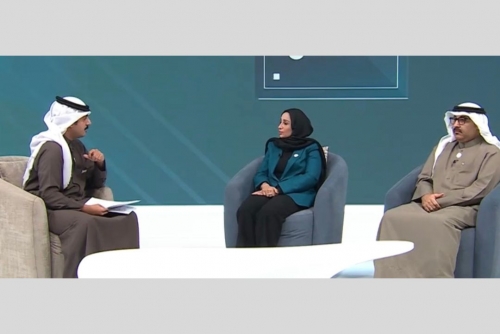Bahrain pioneers innovative treatments for hereditary conditions like sickle cell anaemia and thalassaemia
TDT | Manama
Email: mail@newsofbahrain.com
Gene therapy, now available in Bahrain, has placed the kingdom on the global map as the first Arab nation and only the second in the world, after the UK, to adopt this groundbreaking treatment.
The therapy, aimed at hereditary conditions like sickle cell anaemia and thalassaemia, was among the achievements discussed during a Bahrain TV programme.
The broadcast also covered the Government Action Plan (2023–2026), with officials reporting that 68 per cent of its goals had been reached within two years.
Health Minister, Her Excellency Dr Jaleela Sayed Jawad, called the introduction of gene therapy a turning point in Bahrain’s healthcare system.
“This treatment represents a new horizon for patients, offering solutions that were once thought impossible,” she said.
Infrastructure upgrades
Dr Jaleela also mentioned infrastructure upgrades in public hospitals and primary healthcare centres, which have prepared the sector for the roll-out of the national health insurance scheme.
She shared that around 700 medical professionals, including doctors and nurses, had received training through programmes developed in partnership with Tamkeen.
Dr Jaleela also shared updates on public service projects, including the reengineering of 500 government services, with 50 in healthcare alone.
She described the launch of an electronic reporting system for infectious diseases and the ‘Sehati’ app, which enables users to book medical appointments and donate blood.
“These projects are helping to make healthcare more accessible and efficient,” she said.
Education Minister, H.E. Dr Mohammed bin Mubarak, announced plans to introduce the International Baccalaureate (IB) programme into public schools.
He explained, “The IB will provide students with pathways to top international universities, and some will even qualify for waivers from foundation programmes. This initiative aims to give students greater opportunities to succeed.”
He added that several new school buildings had been completed, with more under construction to meet growing demand.
Dr Mohammed further outlined reforms in scholarships, including adopting cumulative averages as a primary criterion and broadening academic specialisations available for study abroad.
He described these measures as part of a wider effort to ensure fairness and meet the aspirations of high-achieving students.
Progress
Social Development Minister, H.E. Osama Al Alawi, discussed the progress made under the Persons with Disabilities National Strategy.
“Our approach ensures that individuals with disabilities are not only supported but fully included in every part of society,” he said.
Al Alawi highlighted partnerships with private sector groups and efforts to enhance the Child Protection Centre, part of Bahrain’s restorative justice framework.
Sports achievements was also spotlighted during the programme.
Sports facilities
Dr Abdulrahman Askar, CEO of the General Sports Authority, noted that Bahrain now has 42 top-tier sports facilities capable of hosting major international events across 26 sports.
“Our infrastructure and organisational expertise have allowed Bahrain to host some of the world’s most prominent competitions,” he said, pointing to successes like Bahrain’s medal wins at the Paris Championships.
He attributed these accomplishments to the guidance of His Majesty’s Representative for Humanitarian Work and Youth Affairs, HRH Shaikh Nasser bin Hamad Al Khalifa, and HRH Shaikh Khalid bin Hamad Al Khalifa, President of the General Sports Authority.
Related Posts

